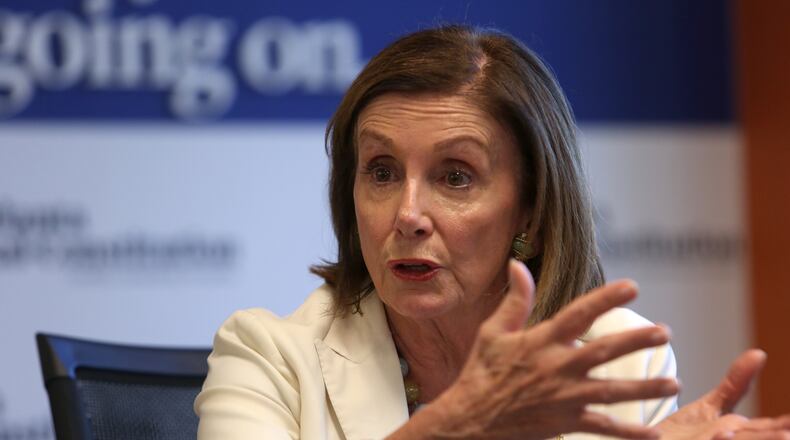U.S. House Speaker Nancy Pelosi said while she didn’t want to be a fear monger, she was “very, very” concerned by the announcement that the federal Supreme Court would consider a lawsuit addressing abortion.
The U.S. Supreme Court on Friday announced it would consider a Louisiana law that requires abortion providers to have admitting privileges at a nearby hospital.
“I really have very serious concerns about this court,” The California Democrat said in an interview with The Atlanta Journal-Constitution’s editorial board.
The Supreme Court in 2016 struck down a nearly identical law out of Texas, but that was with a different bench. Since that ruling, President Donald Trump has appointed two justices who tilt the bench in favor of conservatives.
Anti-abortion activists seized upon the opportunity created after Justice Brett Kavanaugh’s confirmation last year, hoping the court would revisit its decision in Roe v. Wade, which guaranteed a woman’s right to an abortion nationwide.
Pelosi said she hoped the justices will respect previous court rulings, but was not sure what this panel of judges would do.
“I think there’s a lot to be concerned about, because even if the court decides a certain way, the states are doing their own dangerous things for a woman’s right to choose,” Pelosi said.
While Georgia doesn't require abortion providers to have admitting privileges, the state was one of several states this year to pass laws that limit access to abortions. Georgia's law, which a judge this week temporarily blocked from going into effect, would have outlawed most abortions after a doctor could detect fetal cardiac activity.
“I think that Roe v. Wade and a woman’s right to choose is greatly at risk,” Pelosi said. “I don’t like to be a fear monger, but this is very personal for people, that their lives will be so affected by a court decision.”
There are about 20 lawsuits involving abortion, in addition to the Louisiana case, the U.S. Supreme Court could consider that would challenge Roe v. Wade. Supporters of Georgia's new law said they believe it is the one that will overturn the landmark 1973 ruling.
The justices are expected to hear arguments in the Louisiana case in the winter and a decision would likely come by the end of June.
About the Author
Keep Reading
The Latest
Featured




